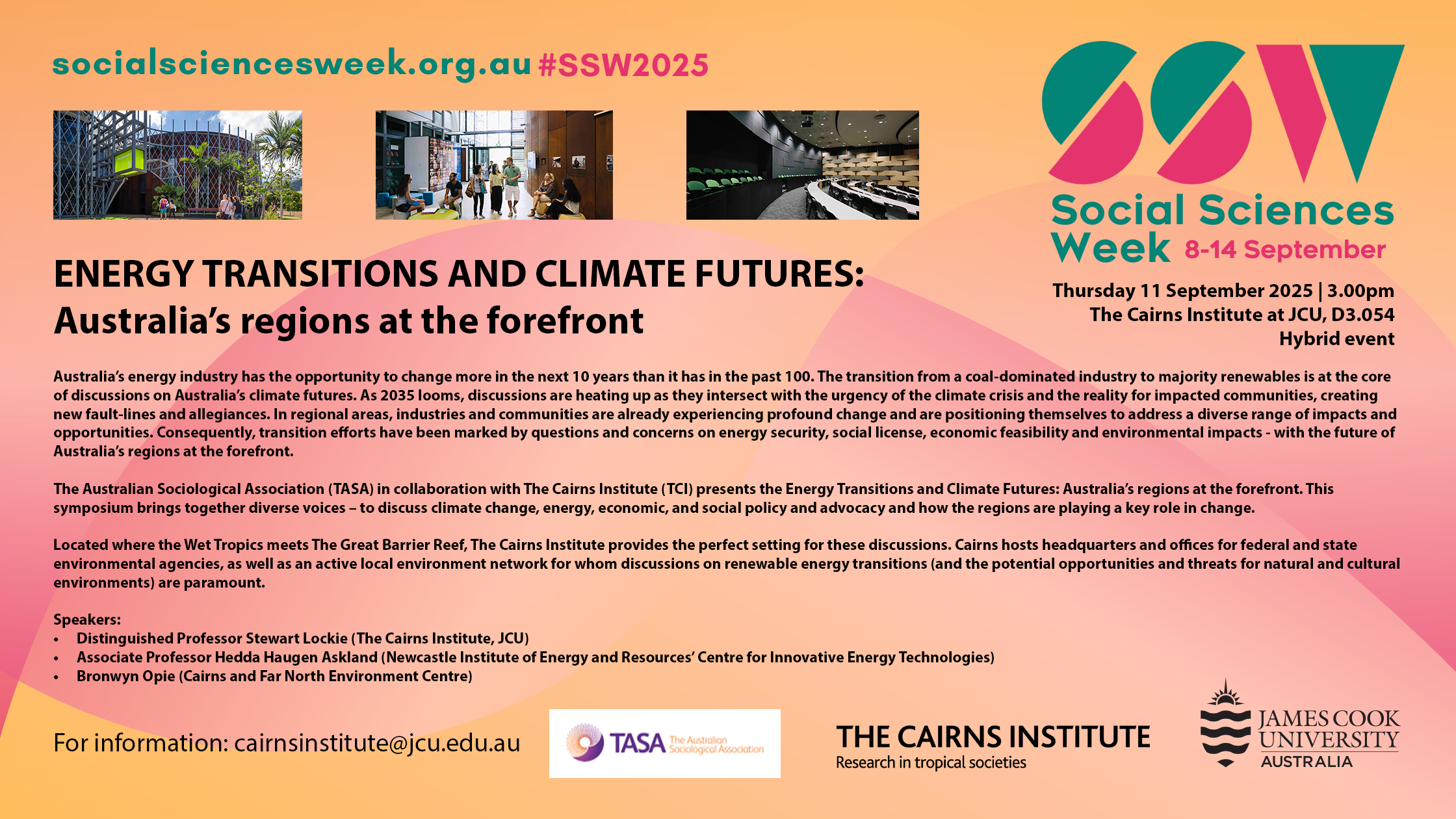Energy Transitions and Climate Futures: Australia’s regions at the forefront
HybridAustralia’s energy industry has the opportunity to change more in the next 10 years than it has in the past 100. The transition from a coal-dominated industry to majority renewables is at the core of discussions on Australia’s climate futures. As 2035 looms, discussions are heating up as they intersect with the urgency of the climate crisis and the reality for impacted communities, creating new fault-lines and allegiances. In regional areas, industries and communities are already experiencing profound change and are positioning themselves to address a diverse range of impacts and opportunities. Consequently, transition efforts have been marked by questions and concerns on energy security, social license, economic feasibility and environmental impacts - with the future of Australia’s regions at the forefront. The Australian Sociological Association (TASA) in collaboration with The Cairns Institute (TCI) presents the Energy Transitions and Climate Futures: Australia’s regions at the forefront. This symposium brings together diverse voices – to discuss climate change, energy, economic, and social policy and advocacy and how the regions are playing a key role in change. Located where the Wet Tropics meets The Great Barrier Reef, The Cairns Institute provides the perfect setting for these discussions. Cairns hosts headquarters and offices […]



